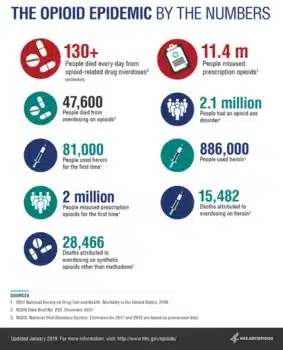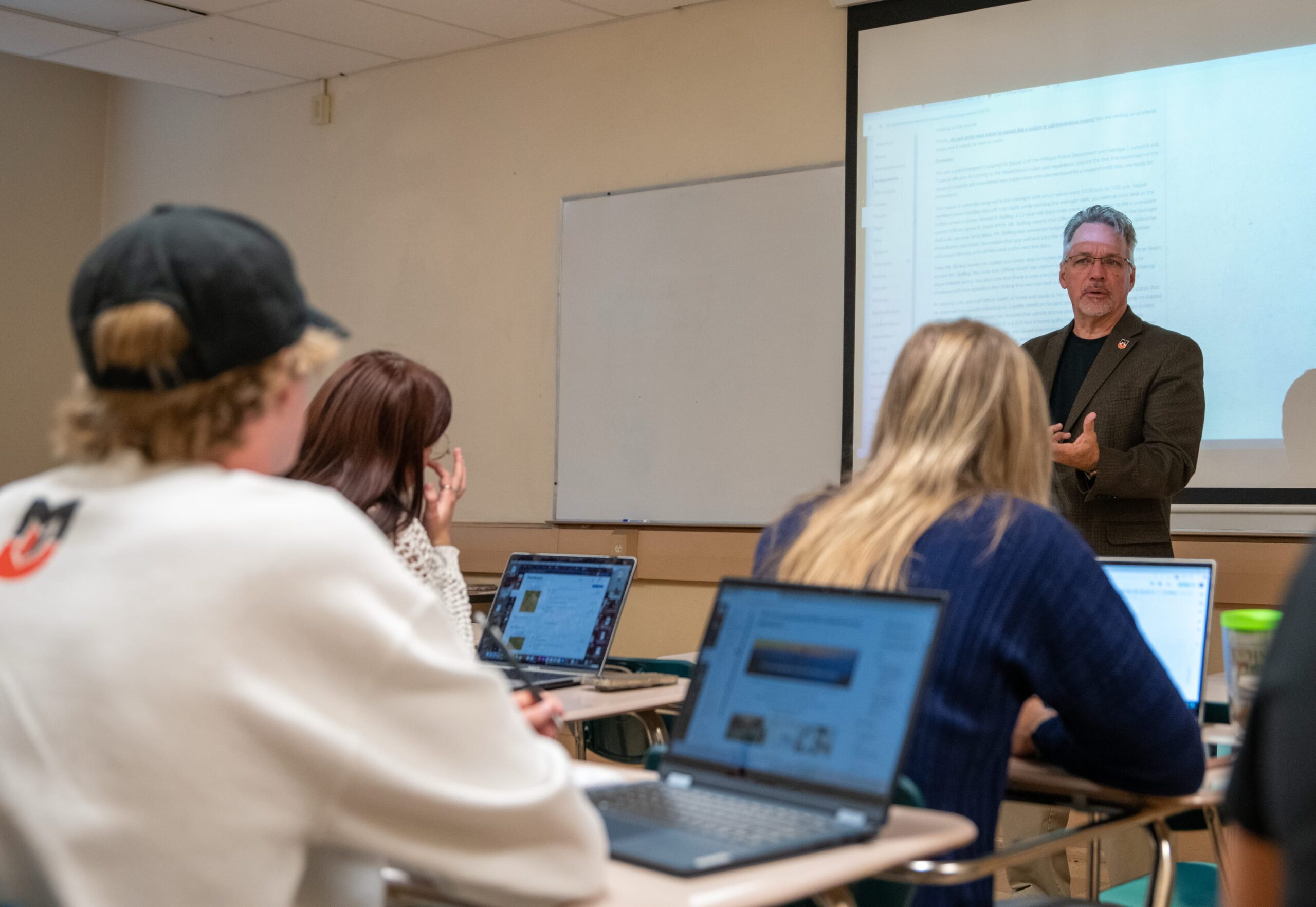Addictions Counseling (MSC) at Milligan
As drug abuse continues to climb, our state and country need trained counselors to help those who are suffering from addiction and related problems that go hand in hand with addiction.
Together with the client, counselors identify the addiction, point out the associated behaviors and implement a plan of recovery. With the client, they work on the problems that drug abuse causes and confront emotional and behavioral problems that exist. In addition to the traditional mental health concerns clients present, counselors with the added addiction counseling knowledge treat the addiction at its core and track the progress that the client makes along the recovery journey. The trained counselors keep the client and the family of the client up to date on treatment information, information on addictive substances and behaviors, and the progress being made toward remission. Their job is to educate people about addictive substances, addiction treatment and life after treatment. If necessary, they also arrange treatment at facilities that offer healthcare and other coordinated services. The focus of a counselor with the concentration on addiction work is the client’s recovery.
SCHOOL OF SOCIAL SCIENCES & EDUCATION
MASTER OF SCIENCE IN COUNSELING (MSC): CLINICAL MENTAL HEALTH COUNSELOR – ADDICTION COUNSELING CONCENTRATION
The Opioid Crisis
Every day, more than 130 people in the United States die after overdosing on opioids. The misuse of and addiction to opioids—including prescription pain relievers, heroin, and synthetic opioids such as fentanyl—is a serious national crisis that affects public health as well as social and economic welfare. The Centers for Disease Control and Prevention estimates that the total “economic burden” of prescription opioid misuse alone in the United States is $78.5 billion a year, including the costs of healthcare, lost productivity, addiction treatment, and criminal justice involvement.
Approximately 10% of all people, regardless of culture, will experience a substance use disorder at some point in their life. In the United States, approximately 2.1 million have an opioid use disorder. Closer to home, Tennessee continually ranks in the top 5 U.S. States in terms of substance abuse rates. One of the causes of addiction is emotional trauma, especially childhood trauma. Approximately half of those people will go without treatment.
Drug overdose deaths continue to increase in the United States:
- Roughly 21 to 29 percent of patients prescribed opioids for chronic pain misuse them.
- Between 8 and 12 percent develop an opioid use disorder.
- An estimated 4 to 6 percent who misuse prescription opioids transition to heroin.
- About 80 percent of people who use heroin first misused prescription opioids.
- Opioid overdoses increased 30 percent from July 2016 through September 2017 in 52 areas in 45 states.
- The Midwestern region saw opioid overdoses increase 70 percent from July 2016 through September 2017.
- Opioid overdoses in large cities increase by 54 percent in 16 states.
- More than 760,000 people have died since 1999 from a drug overdose. Nearly 75% of drug overdose deaths in 2020 involved an opioid.

In-Demand Profession
These statistics indicate that there is a growing need for substance abuse and other counselors. The U.S. Department of Labor expects the demand for Substance Use Disorders/Addiction Counselors to grow by 22% by 2024.
Most addiction professionals are employed in the following industries: outpatient care centers; mental health and substance abuse facilities; individual and family services; local government; general medical and surgical hospitals; psychiatric and substance abuse hospitals; and private practice. Many other addiction professionals work in prisons, probation or parole agencies, juvenile detention facilities, halfway houses, detox centers and employee assistance programs.
Curriculum
The addictions concentration is a two-year (six semesters), 60 credit hour curriculum that prepares graduates to pursue licensure as a Licensed Professional Counselor (LPC) with a concentration in addictions counseling. Courses are offered on the Milligan campus, with some hybrid (online and on-campus). Courses include those needed for a broad understanding of mental health counseling (42 credit hours in human behavior and development, evidence-based practice, effective counseling strategies, ethical practice, and other core knowledge areas), as well as six courses (18 hours) necessary to equip students with the knowledge and skills necessary to address a wide range of issues in the context of addiction counseling. Because Milligan is a Christian university, part of the required coursework includes an ongoing discussion and examination of the theoretical and practical aspects of the integration of faith and learning.
Licensed Professional Counselors (LPC)
After completing the Master of Science in Counseling degree and completing a minimum of two years (at least 10 hours a week) of supervised professional experience, graduates are eligible to sit for licensure in Tennessee as a Licensed Professional Counselor. Reciprocity agreements may allow TN licensure to apply in other states. Graduates are also eligible to sit for licensure in Kentucky, North Carolina, and Virginia. A determination of eligibility has not been made for other states. Students should check specific state requirements before applying to the program.
Read more about Licensed Professional Counselors
Graduates are also prepared to do the post-masters supervised hours to be a licensed alcohol and drug addictions counselor in the state of Tennessee; eligibility for licensure in other states has not been determined. Graduates of our program will receive the documentation to show they have completed the necessary didactic training and educational competencies per the LADAC master-level requirement.
Add-On for Current LPCs
Current licensed clinical mental health counselors can add on the addictions concentration in as few as two semesters if currently working in the addictions field.
Admission
In order to be considered for admission for this program, the minimum requirements and steps are as follows:
- PREREQUISITES: An undergraduate degree that includes at least 9 hours of psychology courses, including General Psychology, Developmental Psychology, and Research Methods or Statistics
- DISCOUNTED PRE-REQ COURSES: You might be able to take some prerequisite courses at Milligan at a reduced rate.
- UNDERGRAD DEGREE: Completed baccalaureate degree from a regionally-accredited college with overall undergraduate grade point average of 3.0.
- APPLICATION: Completed application with personal statement. Apply online!
- TRANSCRIPTS: Official transcripts from every college attended whether or not the applicant graduated from that school must be mailed by your college(s) directly to Milligan.
- GRE: The Graduate Record Examination (GRE) is not required if an applicant’s overall undergraduate grade point average is 3.00 or higher. Applicants for whom the GRE is required must score at the 50th percentile or higher. Request that your official GRE scores be sent to Milligan’s Office of Graduate & Professional Studies. Milligan University’s GRE code is 1469.
- REFERENCES: Two professional or educational recommendations will be requested from within the online application.
- INTERVIEW: On-campus interview scheduled for qualified applicants.
- INTERNATIONAL STUDENTS: This program is approved by SEVIS to accept international applicants. International students must complete the application requirements for this program AND the international application requirements and immigration/visa process.
PLEASE RETURN ALL APPLICATION MATERIALS TO:
Office of Graduate & Professional Studies
PO Box 22
Milligan, TN 37682
Please feel free to contact the Office of Graduate & Professional Studies to verify the receipt of the above application requirements. If you have any questions, please contact the University at 800.262.8337 or 423.461.8424 or by email.
The Early Acceptance Program (EAP) provides Milligan undergraduate students with a unique financial and academic opportunity to apply and commit early to the MSC in order to receive lower tuition rates and secure their spot early in the program.
BENEFITS
- Locks in tuition rate
- Secure your spot in the program
- Lighten your course load during the MSC program by taking 1-2 MSC courses as an undergraduate
REQUIREMENTS & PROCESS
- MILLIGAN UNDERGRAD: Be a Milligan undergraduate student (any major eligible; prerequisites are required)
- PARTICIPATION FORM: By fall of junior or senior year, complete and submit (to the GPS Office) the Participation form » for the EAP, which requires approval signatures from both your undergraduate advisor and MSC faculty director
- APPLY TO MSC: Complete the MSC admission process, be admitted, and pay deposit by following deadline in order to lock-in that year’s tuition rate:
-
-
- JUNIORS – by APRIL 15
- SENIORS – by NOV 15
-
- COURSEWORK: Complete the MSC graduate coursework for the Accelerated Plan
-
-
- JUNIORS can take two MSC courses their senior year (one course each semester) in addition to their normal undergraduate course load.
- SENIORS can take one MSC course the spring of their senior year in addition to their normal undergraduate course load.
-
*Approval to declare the Early Acceptance Program is not a guarantee of your admission to the Milligan MSC program.




